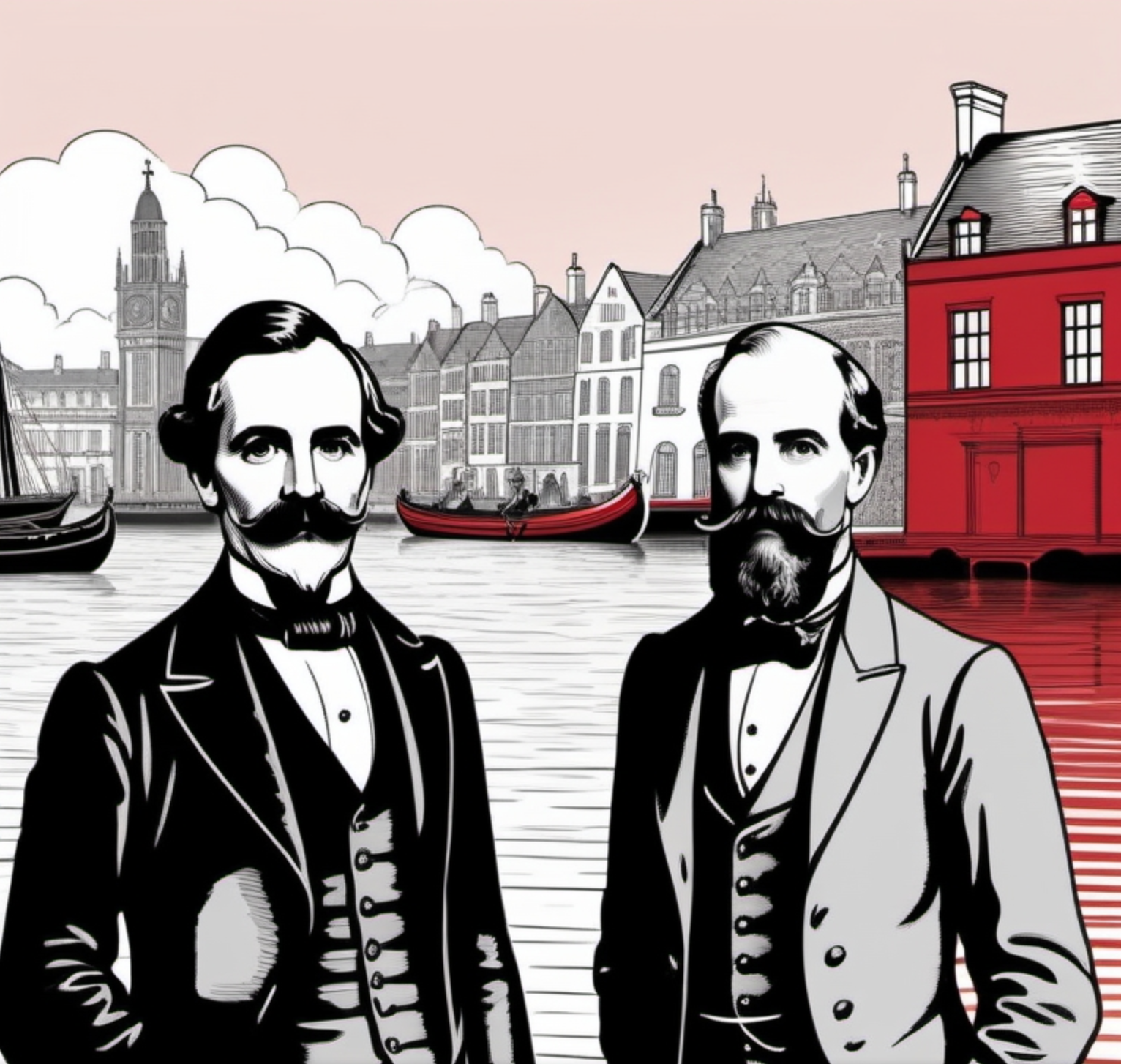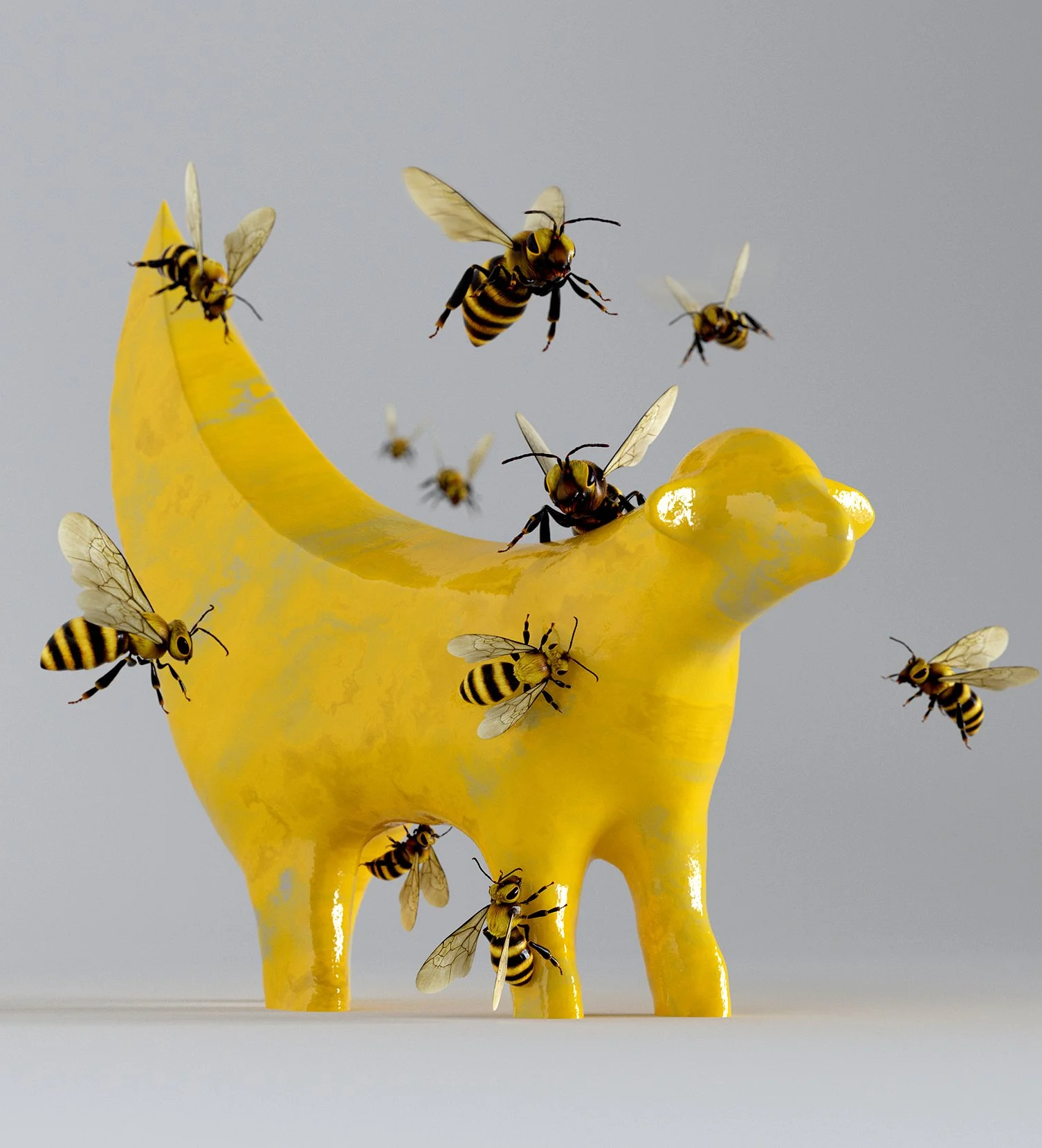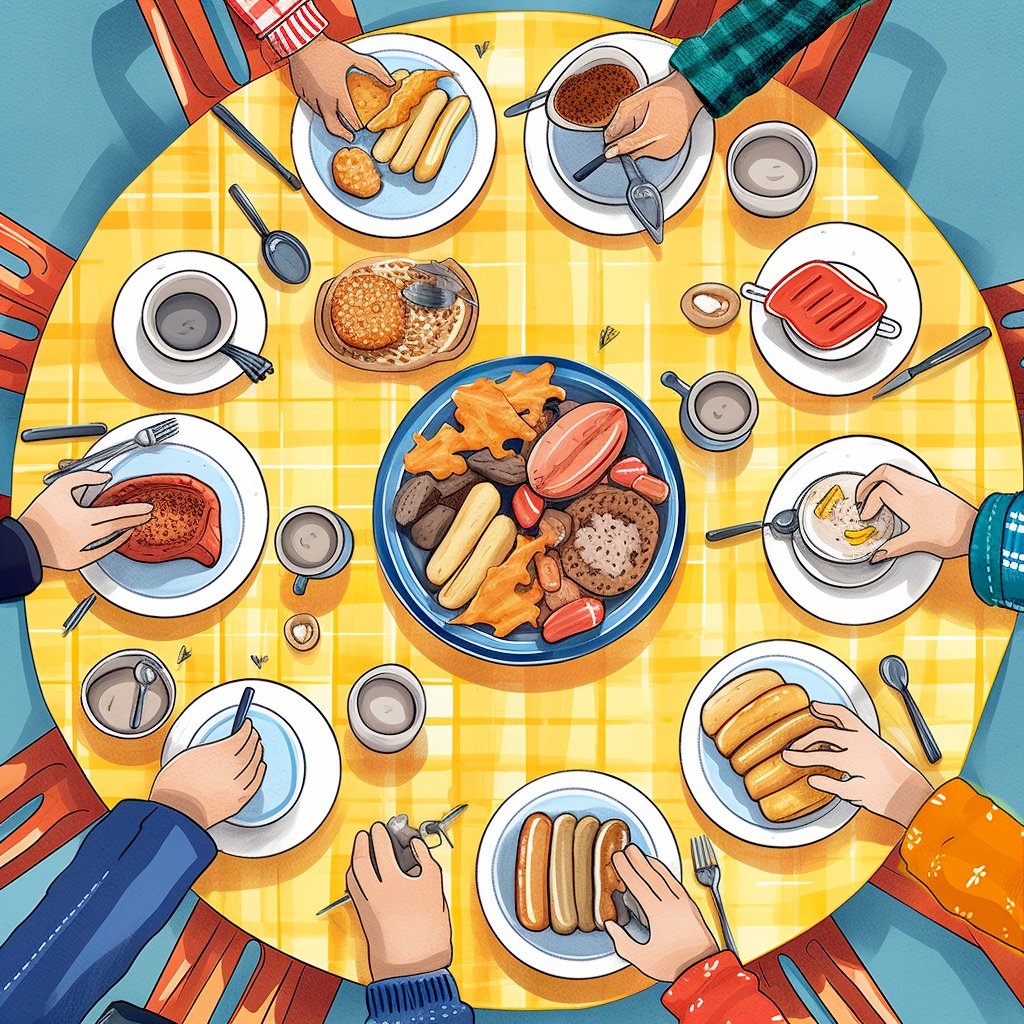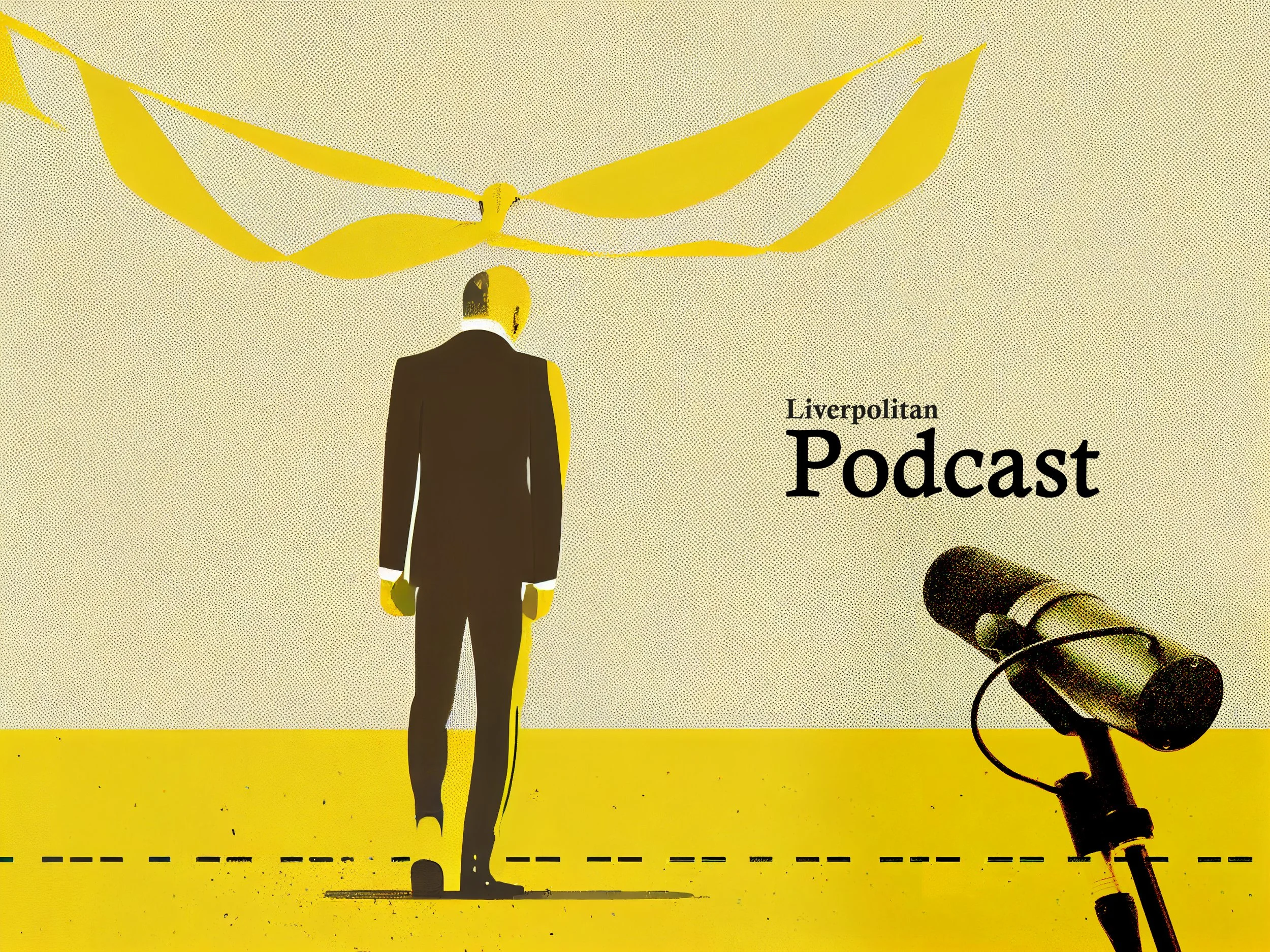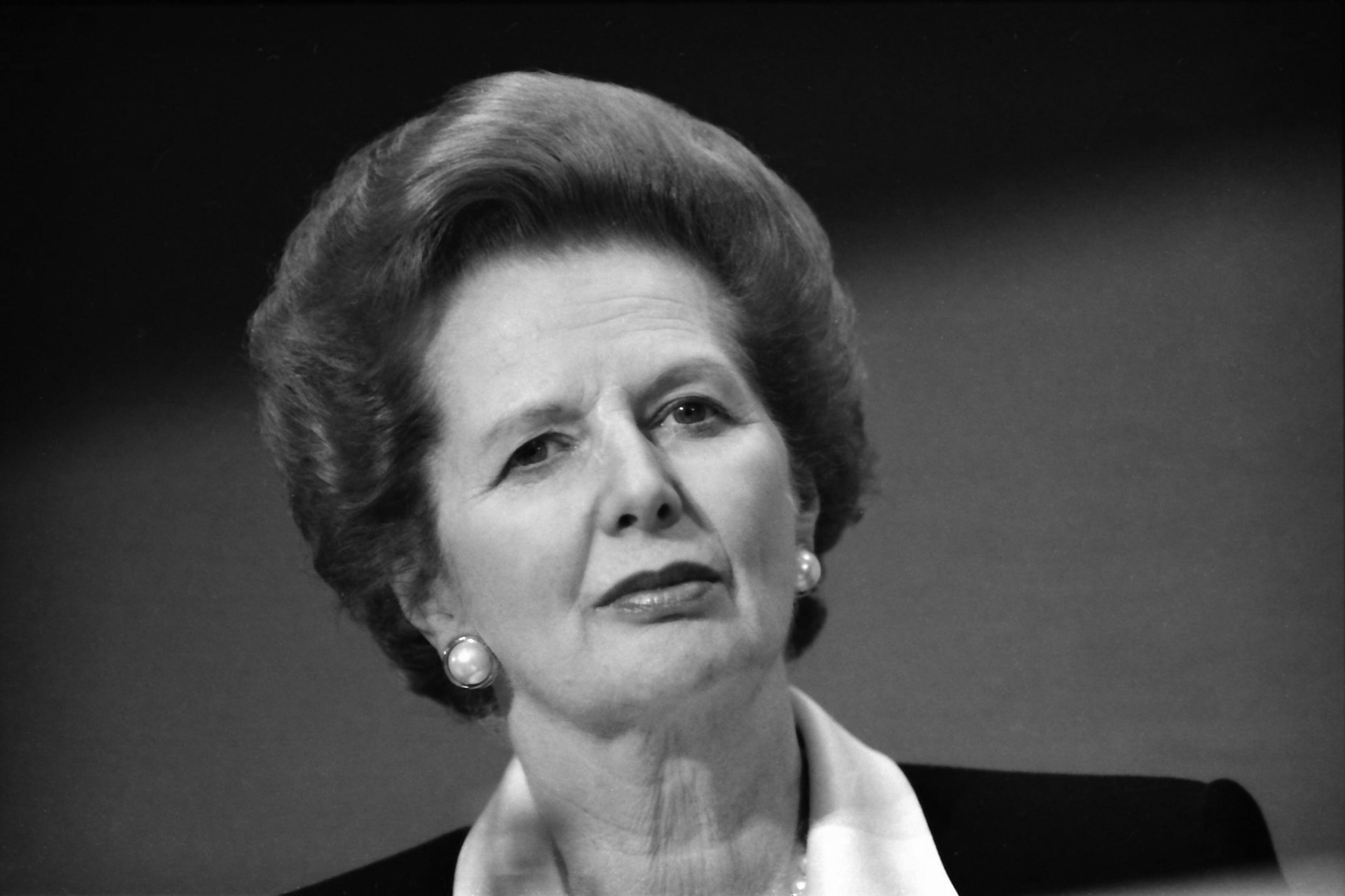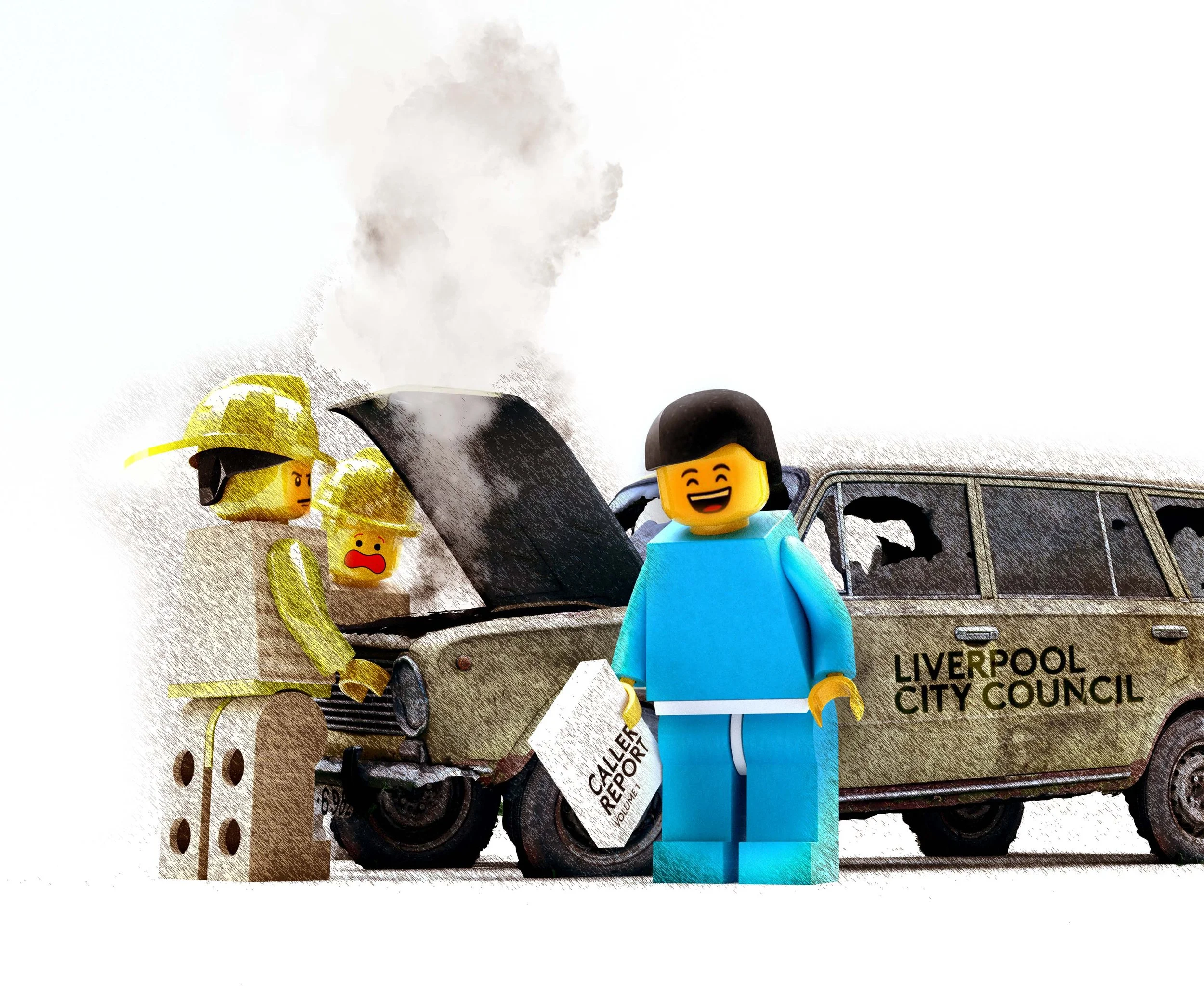Recent features
A life through books: Five decades of radical politics in Liverpool
From an up-bringing which instilled the values of peace and non-violence to fighting against fascist arson attacks on her bookshop, Mandy Vere has witnessed both formative and turbulent times in the city's long history. Now approaching retirement, she reminisces about her life as the longest surviving member of the News From Nowhere collective, Liverpool's, indeed one of Britain's, longest standing, most beloved, independent radical bookshops.
Jane Anderson
From an up-bringing which instilled the values of peace and non-violence to fighting against fascist arson attacks on her bookshop, Mandy Vere has witnessed both formative and turbulent times in the city's long history. Now approaching retirement, she reminisces about her life as the longest surviving member of the News From Nowhere collective, Liverpool's, indeed one of Britain's, longest standing, most beloved, independent radical bookshops.
Born in Stockport in the 1950s to Quaker parents, who were devoted to a life of community engagement and socialist politics, it could be said that those central values have come to shape Mandy Vere's whole approach to life. This value system is focused on five key principles or 'testimonies' for living: Equality, Peace (non-violence), Integrity, Community and Stewardship (sustainability). The Quaker axiom, “that of God in everyone", for Mandy came to be in more humanistic fashion, "that of good in everyone”, essentially a wholly positive view of humanity and its potential.
Her earliest days of community activism had been forged on the streets of Longsight, Manchester around the age of 16. It was there that she became radicalised by a crew of revolutionaries, activists and bohemians who were engaged with community organising, internationalism and the principles of non-violent direct action; as well as with the very real and pressing issues of poverty and homelessness. There was also the blossoming and exciting new world of sex and drugs and rock 'n' roll to explore.
Needless to say, a lot of learning, experimentation, and fun was had, but it was in Liverpool that Mandy went on to find her calling. The city was at that time a very exciting and cool place to be. Post the Swinging Sixties and Mersey Beat, the ever-present sea breeze seemed to carry so much promise and possibility.
The News From Nowhere bookshop had been set up by Bob Dent, an acquaintance of Mandy's from the various alternative scenes in Liverpool, in 1974, in a tiny shop on Manchester Street (now re-named, Old Haymarket). Having come to Liverpool to study for a degree at the university and subsequently dropping out, Mandy joined Bob in managing the shop in 1976. Another member of staff arrived in 1979, and then a couple of years later Bob left to pursue other projects. It was then that the decision was taken to create a female-only collective.
The phrase 'The personal is political' was coined in 1968 by Carol Hanisch, an American civil rights worker and radical feminist, to challenge the view that the public and private spheres were separate realms; especially as they related to women, who had long been assigned merely a domesticated and supportive role in society. The concerns of men were painted in broad brush strokes on large canvasses, whereas the woman's realm was seen as being small and interior, and not really the stuff of politics.
Mandy recalls the many times when book sellers and publishing agents would come into News From Nowhere and ask to "speak with the boss", assuming the manager would be male. At the time, it was still highly unusual to see women in positions of authority or in managerial roles outside of the strictly determined 'feminine spheres' of work. Even some of the shop's male customers would automatically seek out other male customers when looking for advice, rather than asking one of the staff.
Feminist texts were not readily available at the time, and a request from a customer for Marge Piercy’s, Small Changes (a fictionalised account of the struggles of two women to liberate themselves from restrictive relationships) prompted, after much searching, the book to be ordered from a U.S. publisher. That opened the floodgates to a world of new, ground-breaking feminist texts. 'Sisterhood Is Powerful', a compilation of writings by women, is one amongst many that Mandy recalls as being pivotal for her. 'The personal is political' was not just an empty trope; it was a sentiment that meant that every action one took in life, every choice, and every decision mattered. That by raising one's consciousness, confronting power and speaking truth you could change the world one step at a time. The idea of a women's collective was based on the desire to support women; offer them professional training and experience in the largely male book trade, as well as challenging the notion that all organisations must be hierarchical in structure. The Quaker and socialist values of equality and egalitarianism had to mean something.
Some topics have become almost too hot to discuss in an honest and open manner.
Unlike most of the other radical bookshops in Liverpool at that time, News From Nowhere, named after the utopian socialist novel by William Morris, was not party affiliated and by being truly independent was able to to stock whichever texts were liked, across a very broad range of leftist, anarchistic and generally radical thinking. Progressive Books; October Books; Red Books and Mersey Books, amongst others, were affiliated with the Communist party, the Maoist party, the International Marxist Group and the Workers Revolutionary Party, respectively, and their stock and the subsequent general mood of the shops reflected these more narrow, sectarian affiliations. In time, this inevitable fracturing and sectarianism that had always plagued the Left, led to some disillusionment with aspects of leftist politics, and Mandy became interested in more anarchistic, libertarian models of thinking.
The Left, especially in Liverpool, she feels, had a very narrow and single-minded focus on class. Sexism and racism were often overlooked as were ecological and environmental concerns. The bookshop, she says, was "viewed by some as an irrelevance" during the Militant Tendency years, as the staff were not "white, male, working class trade unionists". There seemed to be a pre-occupation with what divided people, with these divisions being relentlessly exploited and exacerbated, to the extent that any proposal would be voted down simply because another party had proposed it. Mandy feels this kind of approach still very much scars the political scene in Liverpool today and that 'one-party politics’, which has defined the city for many years now, is by nature undemocratic and makes government susceptible to corruption.
In spite of initial dismissals by some that News From Nowhere was being run as a women-only collective, events in the 1980s caused many in the community to rally around and come together in support of the shop.
Throughout the 1980s, radical bookshops everywhere were being subject to violent fascist attacks by individuals and groups aligned with the National Front. Groups of thugs would come in to News From Nowhere, at its then home on Whitechapel, rampage around, upturning tables and bookcases, and even assaulting people.
Publishing houses now refer to lesbian authors as ‘queer authors’, regardless of whether they identify as ‘queer’ or not.
This became quite a regular occurrence, which then escalated to arson attacks - twelve in total. When the police were called, Mandy recalls an almost accusatory tone, that maybe they themselves had done something to provoke these attacks, just by being an overtly left-wing outlet. Through community effort, enough money was raised for metal security shutters and to replenish damaged and destroyed stock. People began to appreciate just how much the collective had been on the front line, and the shop started to become the icon and beacon of enlightenment that it remains to this day.
This was not to be Mandy's first uncomfortable experience with policing and the justice system. She was jailed in 1979 for supposed importation of cannabis (a customer had posted a package for themselves to the shop and it was intercepted). She felt that both she and the wider radical movement, by extension, were being made an example of. Mandy was sentenced to six months, initially in HM Prison Risley ("Grisly Risley", as she calls it)", but was then moved on to Moor Court open prison in Staffordshire where she was to serve the majority of her sentence.
Mandy recalls scrubbing floors and working on a production line inserting screws into plugs, as BBC Radio One blasted out the pop hits of the day. Just up the hill from Moor Court was a working dairy farm, and many of the women were put to work there - sweeping yards and cutting back nettles, before eventually graduating to milking the cows, for which Mandy gained a milking proficiency certificate, as well as a new found appreciation for cows and goats - each with their own character and personality.
Knitting, yoga sessions, and learning to type passed the time and Mandy taught a fellow inmate to read via the pages of The Guardian which her parents would regularly send to her. So whilst her time in prison was put to practical use, and she managed to have a modicum of freedom out in the open air, Mandy was aware that many of the other women suffered greatly having been separated from their babies and children. In later years, and in honour of her experiences and of the other women, Mandy was to go on to invite the Clean Break Theatre Company, which was formed by female ex-prisoners, to perform at the Liberty Hall in Liverpool, a venue which hosted 'alternative' theatre and concert events, with which Mandy was actively involved.
Practically focused, self-help community groups and collectives have always been where Mandy is most at home. This is one area in which she feels that the city of Liverpool and its population has always been strong, especially the Liverpool 8 community, her home of over 26 years. For so long ghettoised and subject to oppressive policing; the people's voices dismissed and ignored in the years of Militant; L8 has gone on to nurture many community initiatives. The Princes Park Health Centre, established in 1977, was a truly radical practise through which its founder, Dr Cyril Taylor, applied a more holistic approach to health. Ill health, he believed, was caused by factors not only in one's immediate situation and environment, but also by the social and political conditions of one's life. Groups of women and children would be taken to local swimming baths and on walking trips to Moel Famau in North Wales. For some in the community it would be the first time they had ever set foot outside of the city. There were cycling initiatives, and housing co-operatives were established, including Mandy's own housing co-operative which was centred on Kelvin Grove and which gave shelter and support to many women over the years, and where several babies were born.
Mandy had also been very actively involved in the practice of co-counselling; a grassroots method of personal change based on reciprocal peer counselling. Time is shared equally and the essential requirement of the person taking their turn in the role of counsellor is to do their best to listen and give their full attention to the other person. It was at the Princes Park Health Centre that Mandy helped to develop this practice via a programme of therapeutic play sessions for local families.
Mandy reflects on how in more recent years, there has continued to be lots of new grassroots community initiatives, such as: Squash, the food co-operative on Windsor Street; the Liverpool Community Tool Library which has been established in Lodge Lane; and the Granby 4 Streets housing project, which involved the community-led regeneration of some of the many houses made derelict by the failed Housing Market Renewal Strategy, overseen by former Labour Deputy Prime Minister, John Prescott. In north Liverpool, Home Baked in Anfield has been providing a community kitchen, bakery and cafe for the last nine years, and hopes soon to launch a number of newly renovated, co-operatively-run houses for local people. Kitty's Launderette, which is located on Grasmere Street in Everton, is a community-driven initiative combining laundry facilities and and social space. It is inspired by Kitty Wilkinson, a 19th century Irish immigrant to Liverpool, who became the pioneer of the early wash house movement, which was instrumental in bringing about control of a major cholera epidemic which swept the city in 1832.
Being News From Nowhere's main book buyer was, for Mandy, often a delicate balancing act between providing unfettered access to a wide range of literature from all fields of leftist and radical thinking, and being conscious of some of the sensitivities of those caught up in, or at the hard edge of, the contentious and often fraught disagreements and issues of the day. The shop stocked Irish Republican literature and campaign material, for example, at the same time that there was a national media blackout and censure of interviews with prominent Irish Republicans. People from British military backgrounds, and from the local Protestant community, would come into the shop to express their upset at prominent window displays of Republican literature. Some members of the Jewish community would express disquiet at how the bookshop seemed to them to be overtly promoting an anti-Zionist stance, and confecting one-sided presentations of the Israeli-Palestinian conflict. Mandy, mindful of not wilfully causing upset or offence, and knowing full well the age-old anti-Semitic oppression of the Jewish people, would annually celebrate Jewish book week and would create prominent window displays to promote it.
People were never shy of coming in to the shop, though, to argue vehemently about or to disagree with what they perceived as biased representations, says Mandy. When the publication of Salman Rushdie's 'Satanic Verses' precipitated a fatwah against the author (declared by the Iranian Supreme Leader, the Ayatollah Khomeini) Mandy thought it was important to stock the book. Contentious issues would always be present and free discussion and debate was the way to approach it. The shop had long been involved with writing and literary festivals of one sort or other and prided itself on being a place which could host and facilitate such discussions. Social media has been utilised to facilitate the presentation of information relating to new publications, upcoming events and so on - but there has consciously never been any engagement in debate or discussion through this medium. Mandy has always strongly felt that it is only through face-to-face communication that relationship, conversation and discussion are humanised, and we treat people differently when they have a visible face and a vital presence.
News From Nowhere has managed to survive when most of the other radical bookstores in the city long ago fell by the wayside. Mandy puts this down to the more broad-minded and inclusive approach to the books they have stocked. There was the sense that the shop provided a space where customers automatically felt the staff were on their team, whichever team that might be. People would come in the day after an election or a major event and be comfortable enough to engage the staff and other customers in often passionate discussion. There was a facility for customers to make themselves a cup of tea or coffee; the shop felt like home, a place where you could be yourself and nobody would try to force anything onto you.
Yet, the rise of social media as the primary platform for debate and dialogue has led, Mandy believes, to the 'flattening out' of discussion in such a way that the subtleties of human communication are lost, and with it the respect for other people, who tend to appear as faceless entities with one-dimensional views. Social media seems to foster a kind of tribalistic culture in which people tend to seek out only those whose views align with their own. Rather than coming into the shop to take part in a discussion in the way they might have done in the past, people are now more likely to take to social media to condemn, often facilitating a social media 'pile on' in the process. As a result, some topics have become almost too hot to discuss in an honest and open manner, and there are now pressures to shut down debate when it involves edgy or contentious issues. Social media bubbles increasingly mean that people will no longer even look directly at source material; will no longer read anything which they believe to be 'not of their tribe', instead resorting to censure and, inevitably, misrepresentation. Mandy is not sure what sort of reception there would be today if, for example, they were to stock and promote the 'Satanic Verses' as they had done in the past. She suspects it may well now be considered a lot more controversial.
Another very contemporary trend which runs directly against everything Mandy has always fought for, is the attempted erasure of language as it relates to sex, especially the female sex, and to sexuality. As with the tradition of working class self-education and intellectualism, the women's movement was predicated on the ability to name and discuss one's situation, and that only by confronting that situation could you claim your power.
Stemming from the American, campus-formulated 'Queer Theory', formulated largely by academic, Judith Butler, which came into prominence in the late 1980s, there has grown a movement to "queer society". This is presented as a liberating and self-actualising way for 'gender, and sexually, non-conforming' people to present their 'true selves' and be accepted. Yet one of its effects is to erase the reality of, and the language used by other groups of people, and to make unsayable certain words. She notes, for example, that in more recent times when a new book by a lesbian author comes out, the publishing houses are now referring to her as a 'queer author', regardless of whether she identifies as 'queer' or not. The language that women, more generally, have used to describe themselves and name their experiences is being eroded. In addition, the word 'queer' is still felt by many gay men to be a term of abuse with which they certainly do not identify.
Given the struggle for women's rights and greater equality for the female sex by previous generations, many young women now take for granted the gains made. For them it is now normal and natural to see women in positions of authority or power, or in occupations and lifestyles once largely closed to women. Mandy is concerned, though, at the way that young women are now steeped in a culture, especially a social media one, which is saturated with extreme pornography and violence, and in the way that it has become normal, even in Left and progressive circles to speak of 'sex work', in a way which she believes disguises the inherent exploitation of prostitution.
Mandy may be fast approaching retirement from the bookshop, but she in no way sees herself retiring from a life of deep engagement with the issues of the day, nor with any stepping back from community organisation and action. Campaigns and projects not only focused on women's rights, but also on issues to do with predatory landlords, and an immediate campaign against the up-coming arms fair at the Liverpool Convention Centre, will be occupying her time. Needless to say, it will be good for her to take a little time out just to relax and reflect on a life lived with honour and integrity, and true to the principles in which she was raised. She will be much missed in News From Nowhere, but somehow I'm sure that is not the last we'll be seeing from her.
Jane Anderson is a local photographer and former teacher who grew up in the City Region.



